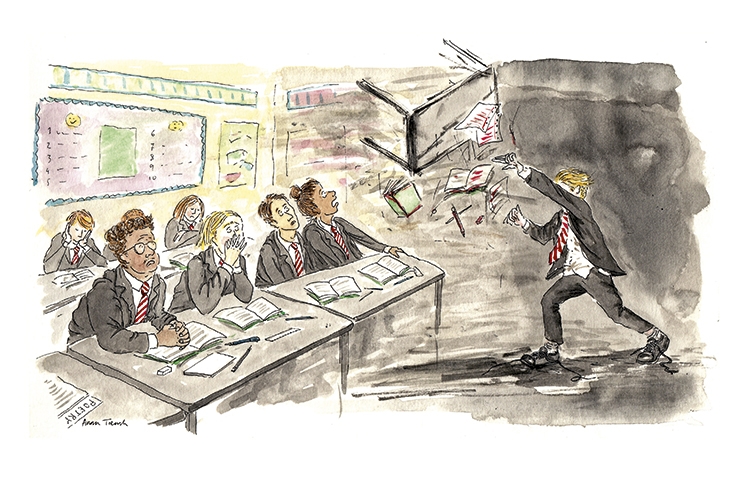Something troubling is happening in Britain’s schools. This week, the government released its findings from the first national survey into pupil behaviour in classrooms. The results are a hard lesson to learn. But, as a teacher who has witnessed chairs being thrown and pupils urinating on teachers’ cars, it doesn’t come as a surprise.
Already a subscriber? Log in
Subscribe for just $2 a week
Try a month of The Spectator Australia absolutely free and without commitment. Not only that but – if you choose to continue – you’ll pay just $2 a week for your first year.
- Unlimited access to spectator.com.au and app
- The weekly edition on the Spectator Australia app
- Spectator podcasts and newsletters
- Full access to spectator.co.uk
Or




















Comments
Don't miss out
Join the conversation with other Spectator Australia readers. Subscribe to leave a comment.
SUBSCRIBEAlready a subscriber? Log in